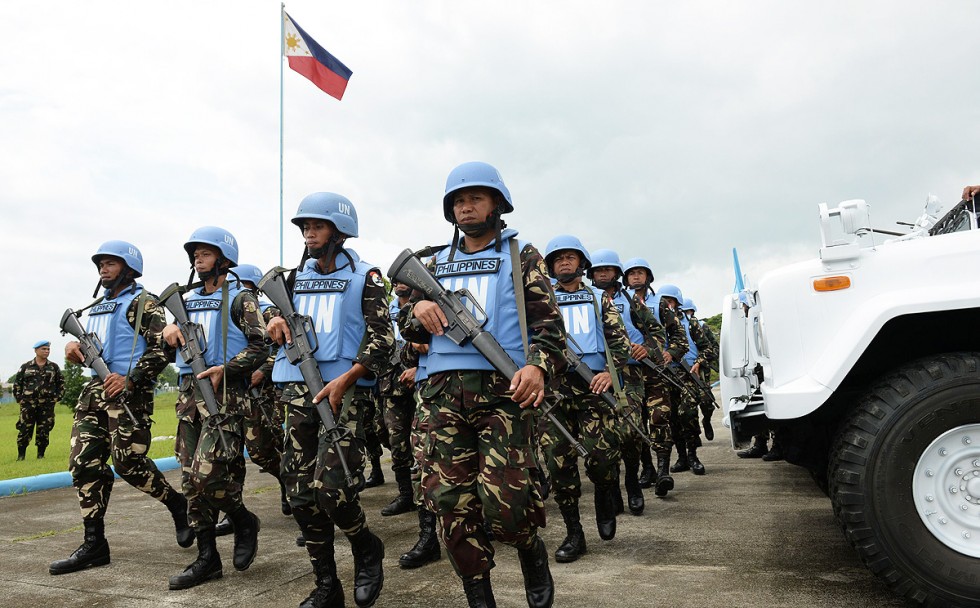U.S. President Barack Obama announced on Monday more than 50 countries have pledged some 40,000 peacekeepers for possible deployment on United Nations missions, as well as helicopters, medical units and training and equipment to deal with roadside bombs.
Obama chaired a summit of world leaders at the United Nations to garner commitments to boost the capacity and capabilities of U.N. peacekeeping and to allow the world body to deploy forces more rapidly if a new operation is created.
“Our goal should be to make every new peace operation more efficient and more effective than the last,” Obama said.
The U.S. ambassador to the United Nations, Samantha Power, said in addition to some 40,000 new troops and police, more than 50 countries had pledged to provide more than 40 helicopters, 15 military engineering companies and 10 field hospitals.
China made one of the biggest commitments. President Xi Jinping pledged to set up a “permanent peacekeeping police squad and build a peacekeeping standby force of 8,000 troops.”
Amid a stream of allegations of misconduct and sexual abuse by U.N. peacekeepers in Central African Republic, U.S. officials say the surplus troops will also allow the United Nations to exercise more discretion with its 16 current missions.
“The overwhelming number of peacekeepers serve with honor and decency in extraordinarily difficult situations. But we have seen some appalling cases of peacekeepers abusing civilians … and that is totally unacceptable,” Obama said.
According to the U.N. website, the United States provides 82 of the more than 106,500 people deployed on U.N. peacekeeping missions: 34 troops, 42 police and six military advisers. But Washington pays for more than 28 percent of the more than $8.2 billion U.N. peacekeeping budget.
Obama said the United States would work to double the number of military advisers that it contributes to U.N. peacekeeping, and offer logistical support, including air and sea lifts, and training.
“When there’s an urgent need and we’re uniquely positioned to help, we’ll undertake engineering projects like building airfields and base camps for new missions,” he said.
During a speech in Brussels in March, U.S. Ambassador to the United Nations Samantha Power called on Europe to consider contributing more to U.N. peacekeeping. She said two decades ago Europeans made up 40 percent of U.N. peacekeepers, but that has fallen to about 7 percent.
More than a dozen European countries stepped up on Monday. British Prime Minister David Cameron pledged to send 70 troops and experts to the U.N. and African Union peacekeeping force in Somalia and up to 300 troops to the U.N. mission in South Sudan.
“I believe these things are in our own national interest,” Cameron told the summit. “When countries break up, we see the problems of migration can affect us all. When countries become havens to terror, we all suffer as a result.”
The top five troop- and police-contributing countries to U.N. peacekeeping missions are Bangladesh, Ethiopia, India, Pakistan and Rwanda. They all made further pledges at Monday’s summit. Reuters






 WhatsApp us
WhatsApp us 

